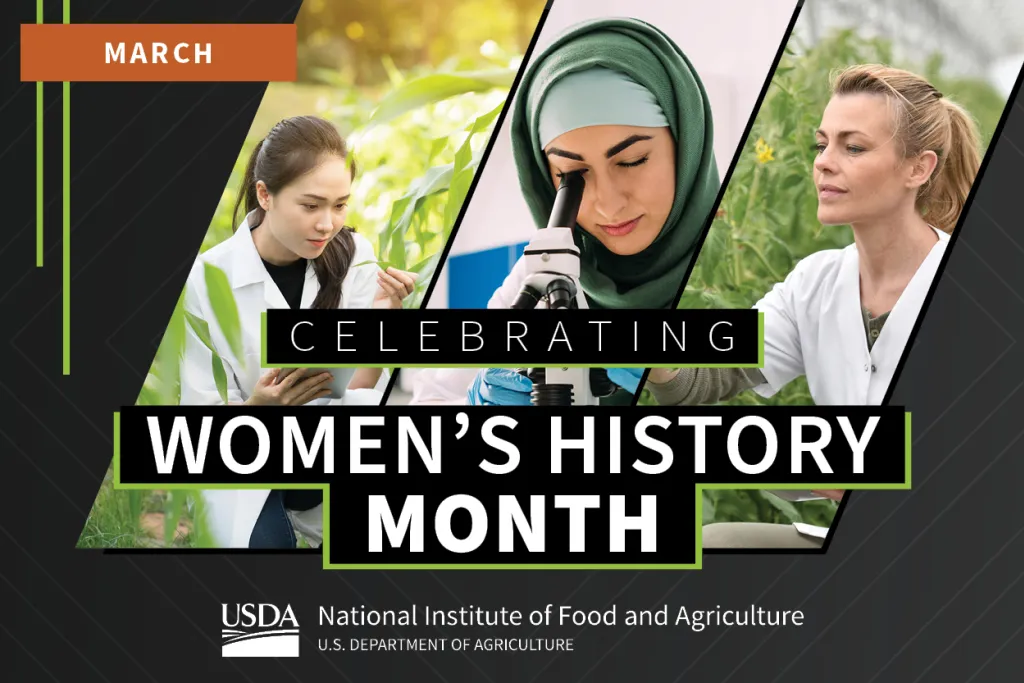This month, join USDA’s National Institute of Food and Agriculture (NIFA) as we celebrate Women’s History Month.
In 2019, more than 51% of all farming operations in the United States had at least one woman operator, according to the USDA Economic Research Service’s 2019 Agricultural Resource Management Survey. Off the farm, women are leading scientists, Extension agents and heading NIFA-funded programs that empower women and girls.
NIFA’s Women and Minorities in Science, Technology, Engineering and Mathematics Fields Grant Program (WAMS) supports research and Extension projects that will increase participation by rural and underrepresented minorities in science, technology, engineering, and mathematics (STEM) fields.
Here are a few examples of how NIFA-funded WAMS projects are working to help advance women in STEM fields.
Engaging Women and Minorities in Agriculture-Related STEM Disciplines through Mentoring, Leadership Development and Experiential Learning
Mississippi State University is working to increase the number of women and minorities from rural areas in food, agriculture, natural resources and human STEM fields to support Mississippi's agricultural communities and national priorities of environmental sustainability, food security, and economic stability. This goal will be met by providing experiential learning opportunities to develop their academic, technical, and professional skills in STEM discipline areas, developing mentoring relationships and leadership skills.
Pathways to Sustainable Materials Science and Engineering: Supporting Rural Women from College to Career
At North Carolina State University, educators are working to expand opportunities for professional careers and educational equity in sustainable materials, science, and engineering for women attending community colleges. This will be accomplished by providing a multi-tiered support system in every phase of the student's postsecondary academic career, specifically through community support, academic mentorship, experiential learning, community research projects, professional development, and university scholarship/admission guidance. The project will enhance the participants' scientific and professional competencies, leadership and communication skills, professionalism, critical and problem-solving skills, and ability to work in teams.
Follow along throughout the month in our newsroom, LinkedIn and Twitter as we highlight more NIFA-funded programs benefiting women and girls, and spotlight leading women in the industry.
Here are a few more examples of how NIFA funding is supporting women’s health and recognizing their successes.
- NIFA Supports Heart Health Research
- NIFA Celebrates Valentine’s Day
- NIFA Celebrates Women and Girls in Science
- NIFA Celebrates Women’s Equality Day

